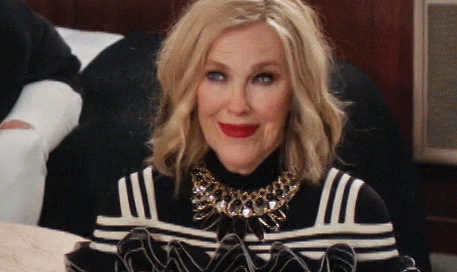Vaccine hesitancy (VH)* has been around as long as vaccines have existed. In turn, finding the root causes of VH has been a decades-long focus of research. The logic is that by discovering the reasons why an individual might decline vaccination, it’s possible to figure out how to encourage people to accept vaccines. Not surprisingly, the answers are multi-faceted, nuanced and challenging.
Now, let’s sprinkle on a pandemic.
During a pandemic, the context of VH is different. Pandemics are times when information is rapidly changing and difficult to understand. As details are being discovered, experts may share findings that conflict. This perceived clash of ideas creates confusion within a stressed public and doubt in expert competence. Meanwhile, vaccines and therapeutic discoveries develop exceedingly faster than usual, which often decreases public trust in the process and product.
Vaccine conversations need to reflect this contextual change. Vaccine messaging during these unprecedented times should be focused on increasing confidence in scientific leadership and the safety of medical discoveries, while adding a sense of personal risk and vulnerability.
In 2021, a place remains for educational campaigns, celebrity COVID-shot-selfies and conversations with trusted health care providers. However, there is a more important and largely more influential way to increase vaccine acceptance. And that, my friend, is YOU.
Research supports that conversations with family and friends increase vaccination rates more than politicians, educational handouts or fights on Facebook. Especially today, vaccine acceptance needs the experience and support of people who love you.
If you believe that increasing community immunity through vaccination is a big way to end this thing—and I do—it will take each of us, as individuals, to be willing to have actual, live conversations with other humans that we care about.
But, Dr. Natasha, I‘m not a vaccine expert! How can I help?
Here’s some advice that may help guide your conversations with [insert family member here]. These aren’t “tricks” or tools of unethical persuasion, rather these are insights to the common mental frameworks of VH people that may help us understand each other and find common ground.
Vaccinate yourself first. We cannot expect others to do anything we would not do ourselves. More importantly, people in your life will get reassurance that if you got safely vaccinated, they can be too.
Approach with empathy, curiosity and openness. Vaccine skeptics are smart people who have rationalized the decision to vaccinate using their own framework of reality and understanding of risk. It’s easy to jump to conclusions about the reason why someone has not gotten the vaccine, but assumptions can get us into trouble. Taking the time to be a sounding board will often reveal a compassionate and effective way to encourage the decision to vaccinate.
Listen more than you speak. Through my decades of experience talking with VH families, I’ve learned that the real reason a person may choose not to vaccinate is about three layers deeper than the original rebuttal. And psychologically, this makes sense.
When humans are put in a position of being stressed or unsure about a decision, we grab onto socially-normed phrases as a form of self-protection. Essentially, we lie to ourselves to protect us from the chronic stress of making a potentially incorrect decision. The more the lie is reinforced by our social networks, the deeper it takes hold. (This is not a VH-exclusive phenomenon, BTW. This self-protective mechanism is something we all do from time to time.)
To overcome this psychological reaction, a listener has to work to uncover the true worry, concern or fear. Sometimes this takes minutes. Sometimes this takes decades. Regardless, it always takes grace and patience until the reason can be discovered and reacted to with compassion.
Anchor the choice to vaccinate with a trusted part of their current worldview. If you know your friend is a huge Olivia Rodrigo fan, talk about her recent visit to the White House. If your best friend follows Fox News, consider asking about Mitch McConnell promoting the vaccine to his party. If they love TikTok, share your worry that social media is allowing the amplification of misinformation and you don’t want them to be fooled. Country music fan? There’s Dolly. Comic-Con lifer? There's Samuel L. Jackson. You get my drift. This leverages the benefits of social norming to lessen resistance.
Talk about what you GAIN from being vaccinated, not what you lose. FOMO is a powerful psychological force that can activate decision making. From the KFF study, a few gains from being vaccinated include “feeling safe and relieved… freedom, confidence, and more certainty that if they did get COVID-19 it would be less serious or they were less likely to die from it.”
Safety first. Efficacy second. Pandemic vaccine acceptance is squarely focused on safety and efficacy. Remember that safety is a feeling, not a number or percentage. People need reassurance that side effects are mild and the COVID vaccine has been through the same rigorous testing protocols as all other FDA-approved vaccines. People also need to know that the COVID vaccine works and will save lives. Our current surges are proving that today.
Share evidence-based and myth busting content on your social feeds. I know this one gets dicey. No one likes to set themselves up for a troll-laden stream of anti-vax abuse. If you aren’t comfortable with public posts, consider sharing positive articles through DMs, private sharing or tagging with a message of concern and respect. Caution: Be sure to fact check before you share!
Although the effectiveness of getting people to vaccinate through social media platforms is yet to be empirically shown, I can attest through personal experience that social media messages are seen and can be influential for change.
Talk indirectly. If talking to a loved one is too difficult, try this. At the next family gathering, find an ally in the room. Talk about your vaccine experience with that person. Share your feelings of concern and worry when unvaccinated people (read: children under the age of 12) are present. Talk about any side effects honestly. Having this conversation within the ear shot of your loved one allows them to hear your position in a non-threatening way.
Even though the conversation is less direct, you still have the ability to influence. A VH person’s reason to decline vaccination may be overcome by simply listening the experience of someone they love. At best, they will hear a message reassuring their decision to vaccinate, while decreasing the stress and anxiety this decision can bring.
Be aware that talking about vaccines can increase anti-vaccine sentiment. This is called psychological reactance. Reactance happens when people feel their freedoms are threatened. As a result of this stress, people dig in deeper to a particular belief or behavior.
One way to lessen psychological reactance is to offer acceptable choices. With an unvaccinated loved one, I might say, “Until you get vaccinated, could we wear masks when we are together?... Have dinner outside?... Meet at the park instead?... Test yourself at home before you come over?... [enter additional risk mitigation option here.]” These options offer safer choices—for everyone involved--and may open up additional discussion as time passes.
In the end, engaging in vaccine conversations is never easy-breezy. These talks make your hands sweaty and your heart race. These are the ones you run over-and-over in your mind while you sit in your car in the driveway. They make you vulnerable and insecure. Important conversations often do.
The pandemic will not be over until most of the world is immune to this threat. As we head into the fall, let’s continue to work together, listen to one another and give each other some grace. We have a way to go, but I know that each one of us has the power to help get us closer to the other side. One conversation at a time.
Stay safe,
PS – Have a success story of how you helped a loved one get vaccinated? I’d love to hear it. Hit reply.
*Vaccine hesitancy is commonly used term to reflect a very diverse group of individuals, including those who vaccinate themselves and their children. For the purpose of this letter, VH refers to the refusal or delayed administration of a vaccine of ample supply, easy access and affordable options. This does not include those whose inability to be vaccinated is due to health inequities, lack of vaccine access or other socially-imposed barriers to vaccination; nor does it include the colloquial anti-vaxxer or COVID denialists who represent a very small portion of our population.
On the much, much lighter side—a quick programming note: This letter is proudly sponsored by WaterWipes, the World’s Purest Baby Wipes. My choice to partner with WaterWipes was easy since I’ve recommended these clinically proven wipes to my patients for years, especially to those with delicate skin.
Here’s the cool part. —> WaterWipes has established the Pure Foundation Fund to celebrate and recognize the dedicated healthcare professionals who bring new life into the world. YOU have a chance to nominate an individual in neonatal, postnatal or maternity care to honor the impact they have made on the tiniest of patients. Two American and two Canadian winners will each receive $3,000 for their department AND the parents providing the winning nominations will each receive a six-month supply of WaterWipes. That’s pretty great.
I know there are thousands of dedicated care providers who have impacted the lives of babies all over our city—and I want a Kansas City winner!! Send in your nominations by August 31, and winners will be announced by the end of September.
As you craft your Kansas City-winning submissions, remember that WaterWipes are evidence-supported and award-winning. For babes with delicate or sensitive skin, the wipes contain only two ingredients for quick and effective cleaning. And, WaterWipes was awarded the National Eczema Association Seal of Acceptance. Find all the details here. Now, go send in those nominations!
Coming up:
There has been a lot of local and national chatter about Delta, back-to-school, and vaccines for kids. Join me LIVE on Insta this Friday, July 23 at 7c for Masks Off Live: Delta Variant Edition. Dr. Nicole and I will get you all caught up. We had fun with this promo video—take a peek.










How do you talk to someone who has already had COVID and does not think they need the vaccine? Especially if they had a mild case.